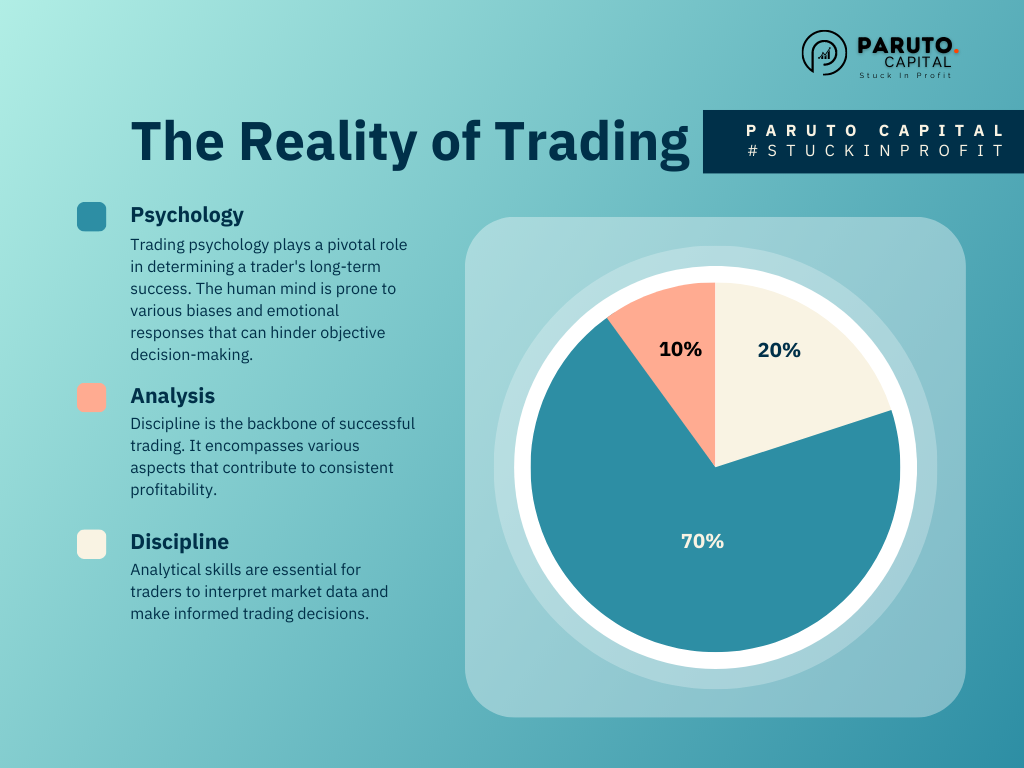Introduction
Forex trading, the largest and most liquid financial market in the world, has attracted countless traders seeking financial success. While many traders focus on mastering technical analysis, there is a growing realization that psychology plays a more significant role in achieving consistent profitability in the forex market. In this article, we will explore why psychology is more important than technical analysis in forex trading.
Emotions and Decision-Making
One of the most significant reasons psychology trumps technical analysis in forex trading is the influence of emotions on decision-making. Forex trading can be a rollercoaster of emotions, with wins and losses affecting traders’ mental states. Emotions like fear, greed, and impatience often lead to impulsive decisions that can result in significant losses.
Technical analysis provides traders with valuable insights into price trends and patterns, but it doesn’t address the emotional aspect of trading. Traders who fail to manage their emotions are more likely to make irrational decisions, even if they have a solid technical analysis strategy. Emotion-driven trading can lead to overtrading, revenge trading, and excessive risk-taking, all of which can erode trading capital.
Discipline and Patience
Successful forex trading requires discipline and patience, virtues that are closely tied to psychological factors. Traders must stick to their trading plans and strategies, even when the market tests their resolve. Technical analysis alone cannot instill the discipline needed to adhere to a well thought out trading plan.
Psychology helps traders stay disciplined and patient, ensuring they don’t deviate from their strategies during tough times. It helps traders maintain a long-term perspective and avoid the temptation to chase quick profits. Without these psychological attributes, even the most accurate technical analysis can lead to failure.
Risk Management
Effective risk management is another crucial element of forex trading, and it heavily relies on psychological factors. Traders need to determine their risk tolerance and establish appropriate stop-loss levels. This requires self-awareness and the ability to make rational decisions in high-pressure situations.
Technical analysis can help traders identify potential entry and exit points, but it doesn’t provide a clear framework for managing risk. Psychology is essential in ensuring that traders stick to their risk management rules, cutting losses when necessary and avoiding reckless trades that can wipe out their accounts.
Adaptability
The forex market is dynamic and subject to constant change. Technical analysis relies on historical data and patterns, but market conditions can shift unexpectedly. Traders must adapt to changing circumstances, and this requires a flexible and adaptable mindset.
Psychology equips traders with the mental agility needed to adjust their strategies and make informed decisions in response to evolving market conditions. An adaptable trader can remain profitable even when technical analysis signals are less clear.
Confidence and Self-Belief
Confidence and self-belief are vital for success in forex trading. Technical analysis can provide traders with the knowledge and tools they need, but it’s the psychological aspect that enables them to execute trades with confidence. Doubt and insecurity can lead to hesitation and missed opportunities.
A trader with a strong psychological foundation is more likely to trust their analysis and take decisive actions. They are also better equipped to handle losses without losing confidence in their abilities.
Conclusion
While technical analysis is undoubtedly a valuable tool in forex trading, it is not the sole determinant of success. The psychological aspect of trading, encompassing emotions, discipline, patience, risk management, adaptability, and self-belief, plays a more significant role in achieving consistent profitability.
Aspiring forex traders should prioritize developing their psychological skills alongside their technical analysis knowledge. Without a strong psychological foundation, even the most advanced technical analysis strategies are likely to fall short in the challenging and dynamic world of forex trading. In essence, psychology is the cornerstone upon which successful forex trading is built. Ready to level up? Start your trading journey with 5% OFF when you use the code MYPARUTOCAPITAL here – https://parutocapital.com/



